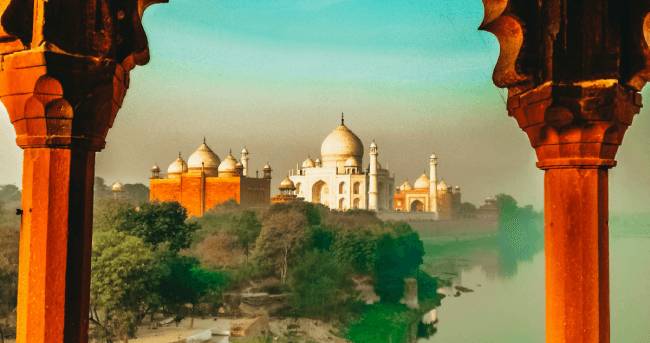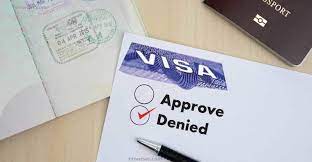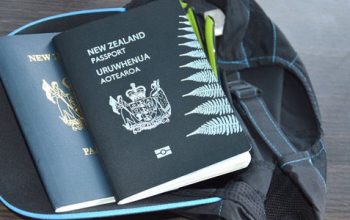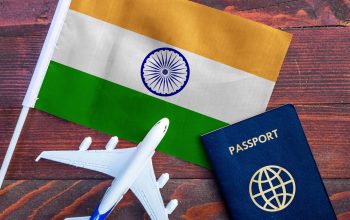Are you planning a trip to India? Excited to explore the vibrant culture, stunning landmarks and mouth-watering cuisine of this amazing country? Well, before you pack your bags and board that flight, there’s one crucial thing you need – an Indian visa! But don’t worry, we’ve got you covered with our ultimate guide to Indian visa FAQs. From types of visas to application procedures and everything in between, this comprehensive blog post will answer all your questions and ensure a smooth journey ahead. So let’s dive in!
What is an Indian visa?
An Indian visa is a travel document that allows citizens of India to enter and stay in the United States for tourism or business purposes. Indian visas are valid for a specific period of time, typically six months but can be extended depending on the circumstances. Indian Visa FAQ
To apply for an Indian visa, you will need to submit an application form and pay the applicable fee. Depending on your nationality, you may also need to provide documentation such as your passport, proof of citizenship, and a photograph. If you are applying from outside India, you will also need to provide evidence of your financial stability and adequate health insurance coverage.
Once you have received your Indian visa application approval, it is important to remember that it is not valid until it has been stamped in your passport. You should also keep all relevant paperwork in case there are any delays with getting onto the US mainland.
If you have any questions about obtaining an Indian visa or traveling to the United States, please contact one of our experienced immigration attorneys at Law Office of Rajesh Agarwal. We can help ensure that your application is processed efficiently and that all required documentation is submitted on time.
How to Apply for an Indian Visa?
If you are planning to visit India for any purpose, you may need an Indian visa. This article will provide you with all the information you need to apply for an Indian visa.
To apply for an Indian visa, you will first need to obtain a visa application form from the Indian embassy or consulate in your home country. The most common type of Indian visa is a tourist visa, which allows you to stay in India for a specific amount of time (usually 30 days). To apply for a tourist visa, you will need to provide your passport details, including your date of birth and citizenship. You will also need to provide evidence that you are travelling to India for tourism purposes only. This could include a copy of your plane ticket, hotel reservation confirmation, or tour guide itinerary. If you are applying for a business or medical visa, you will need to provide additional documentation such as letters from your employer or doctor confirming that you will be working in India or receiving medical treatment from a qualified doctor. INDIAN VISA FOR UNITED STATES Citizens
After completing the Visa Application Form and providing the necessary documents, you will need to schedule an appointment at the Indian embassy or consulate in your home country. During this appointment, officials will review your application and may ask questions about why you are visiting India and what plans you have for while in India. If everything is in order, the embassy or consulate may issue you a tourist visa immediately. However, it is important to note that visas may not always be issued on the first attempt.
What are the Requirements for an Indian visa?
The Indian visa requirements are that the applicant must have a valid passport and visa for their country of origin. Additionally, the applicant must meet all other eligibility requirements for a visa, such as having sufficient funds to support themselves while in India and not being a security threat to India. applicants may also be required to provide evidence of vaccination against yellow fever and tuberculosis.
Are There Any Special Requirements for US Citizens?
If you are a US citizen, you don’t need a visa to visit India. However, there are some restrictions that apply if you plan to stay more than 90 days in a 180-day period. You will likely need a valid passport and proof of citizenship (such as a birth certificate). If you are travelling on an Indian passport, make sure that your visa allows for multiple entries.
How much does it cost to apply for an Indian visa?
There is no one-size-fits-all answer to this question as the cost of applying for an Indian visa will vary depending on your nationality and the type of visa you are applying for. However, in general, applying for an Indian visa will typically cost between $60 and $120.
To apply for a tourist visa, you will generally need to provide your passport information, a copy of your passport photo page, and proof of financial support (such as a recent bank statement or hotel reservation). You will also need to provide your passport size photo.
To apply for a business visa, you will generally need to provide copies of your company registration documents (if applicable), proof of financial support (such as a recent bank statement or hotel reservation), and a letter from the company owner confirming that you are authorized to work in India. You will also need to provide your passport size photo.
Please note that the cost of applying for an Indian visa may increase if you require additional documentation or if you are applying for a longer-term visa.
When is the Application Deadline?
The Indian visa application deadline is typically around six to eight weeks prior to your planned departure date. However, it can occasionally be up to twelve weeks prior depending on the volume of applications received. In order to avoid disappointment, make sure you submit your application as early as possible!
What to do if you missed the deadline?
If you missed the deadline to apply for an Indian visa, there are some things you can do. You may still be able to apply for a visa if you can provide evidence that you will not be in India during your stay. You may also be able to apply for a visa if you can prove that you have urgent reasons why you need to travel to India right away. If all of these options fail, you may be able to apply for a visa on a case-by-case basis.



